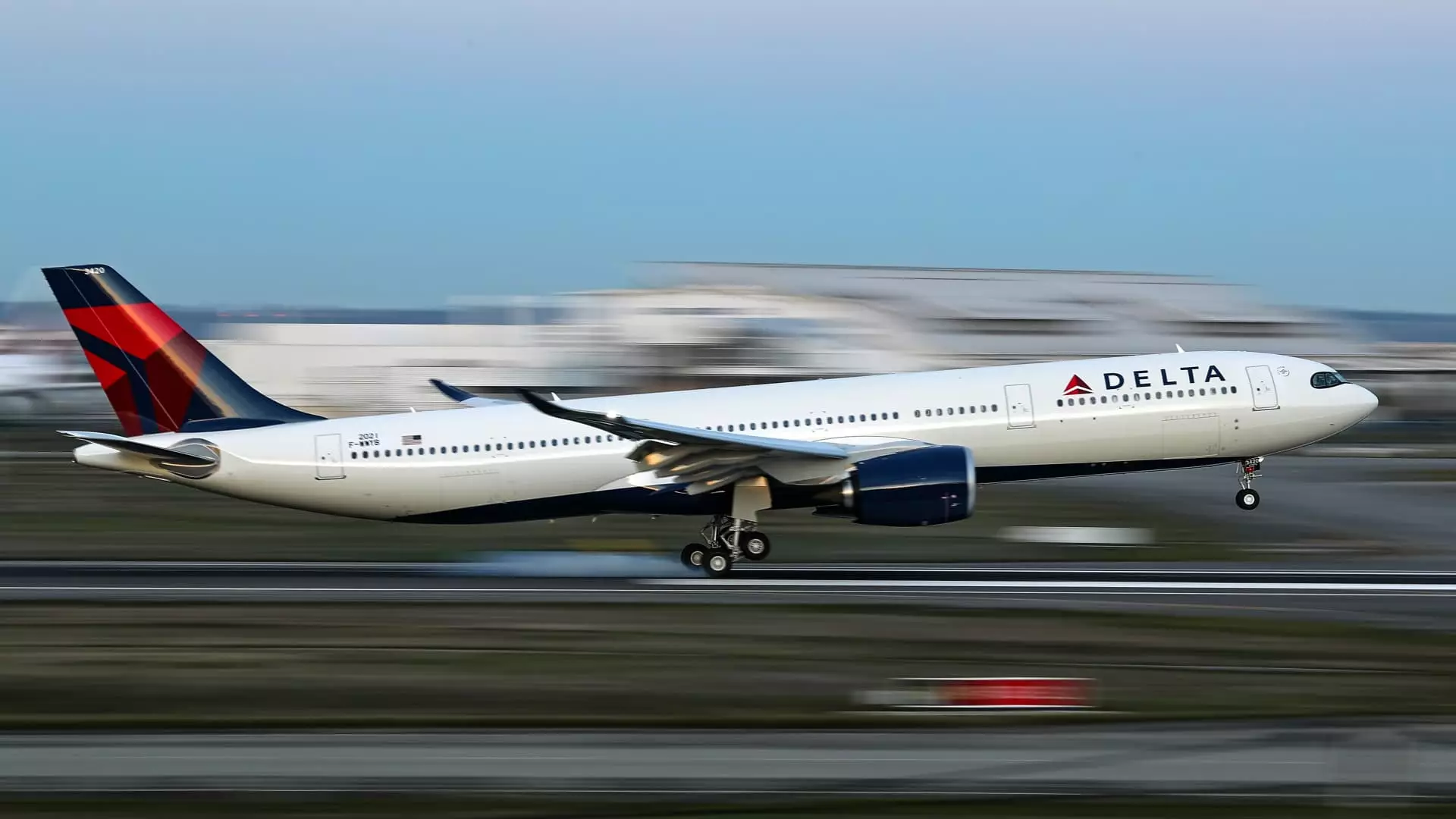In recent years, airlines have relentlessly refined their pricing models, carving out niches within their cabins to maximize profits and cater to increasingly specific passenger desires. Delta Air Lines, often seen as a leader among U.S. carriers, is now shifting its focus toward the front of the plane—the premium cabins—where margins are not just holding steady but expanding. This strategic pivot reflects a broader industry trend: transforming luxury from a simple offering into a complex, segmented experience designed to extract additional revenue from the most affluent travelers.
While such efforts might seem like a positive evolution—offering travelers a tailored experience—the underlying intent appears rooted not in genuine service improvement but in the relentless pursuit of profits. The move to subdivide premium offerings with varying features, price points, and amenities seems more about marketing agility than a clear commitment to ethical service. Delta’s push to create diversified premium products echoes the broader corporate tendency to commodify luxury, turning what was once about exclusive comfort into a battlefield for revenue optimization.
Profit Over Purity: The Hidden Costs of Premium Cabin Tweaking
The figures tell an intriguing story: Delta’s revenue from premium seats increased by 6% in just the first half of the year, while main cabin revenue declined. This shift suggests that the airline is more profitable when focusing on high-end travelers, supporting the narrative that luxury travel remains resilient, even amidst economic uncertainty. But at what cost?
By prioritizing a segmented premium cabin—potentially introducing lower-priced options that strip away key perks such as lounge access or seat selection—Delta risks tarnishing the very luxury experience that defines premium travel. These changes pressuring the traditional notion of “luxury” threaten to distort its meaning into a fuzzy concept that could appeal to a broader, but less committed, customer base. This might temporarily boost revenues, but it diminishes the exclusivity that underpins true luxury, potentially leading to a dilution of brand integrity and customer trust.
Moreover, the move toward narrower, segmented offerings raises concerns about transparency and fairness. Will passengers truly understand what they’re getting at each price point? Are these new options genuinely designed to serve customer needs, or are they merely attempts to squeeze more dollars from those who can pay? The line between enhancing service and exploiting consumer willingness to pay becomes increasingly blurry, and without clear boundaries, this can foster skepticism and erode customer loyalty.
Challenging the Myth of Cost-Effective Luxury
It’s tempting to view these innovations as necessary adaptations to a competitive market, but the reality is more nuanced. Airlines have long justified premium price hikes by touting cutting-edge seats, exclusive lounges, and personalized service. Yet, behind this façade lies a stark economic truth: many of these upgrades are driven by the need to maintain profit margins, not necessarily enhance genuine comfort or experience.
Virgin Atlantic’s “Retreat Suite,” which can be transformed into a social space, exemplifies how airlines are blurring the lines between private luxury and social indulgence. Such offerings are designed to appeal to a specific echelon of travelers willing to pay a premium for exclusivity, but they also reinforce a troubling trend—luxury becomes less about comfort and more about spectacle and social signaling.
Delta’s leadership, including CEO Ed Bastian, admits that their “state-of-the-art” products are aging. The constant need to update and upgrade underscores a superficial commitment to modernity that might mask the underlying question: are these investments just cosmetic, or do they truly enhance the passenger experience? Sadly, the focus on technological upgrades often prioritizes aesthetic appeal over meaningful service improvements, leaving passengers vulnerable to inflated prices for offerings that are, at best, superficially upgraded.
Ethical Implications and the Future of Air Travel
The significant investments into premium cabins highlight a broader societal shift—luxury becomes a battleground not only for comfort but for corporate legitimacy. The question arises: are airlines, including Delta, using these innovations as a genuine way to serve customers better or as a strategic ploy to exploit an affluent niche? In a time when social inequality is under increasing scrutiny, it is worth scrutinizing whether luxury air travel is aligned with broader principles of fairness and responsibility.
While some may argue that catering to high-end travelers subsidizes more affordable fares and sustains the overall airline ecosystem, such a view dangerously overlooks the widening gap between luxury and economy. The premium cabin’s evolving complexity risks alienating the very travelers who depend on economical options, while further entrenching airlines’ roles as purveyors of exclusivity rather than service providers focused on societal benefit.
In the long run, yes, innovation is necessary, but it must come from a place of genuine benefit rather than profit-driven spectacle. Airlines have a moral duty to balance their pursuit of revenue with a commitment to equitable and responsible service. Otherwise, the sky may become a symbol of disparity rather than a realm of shared progress.

